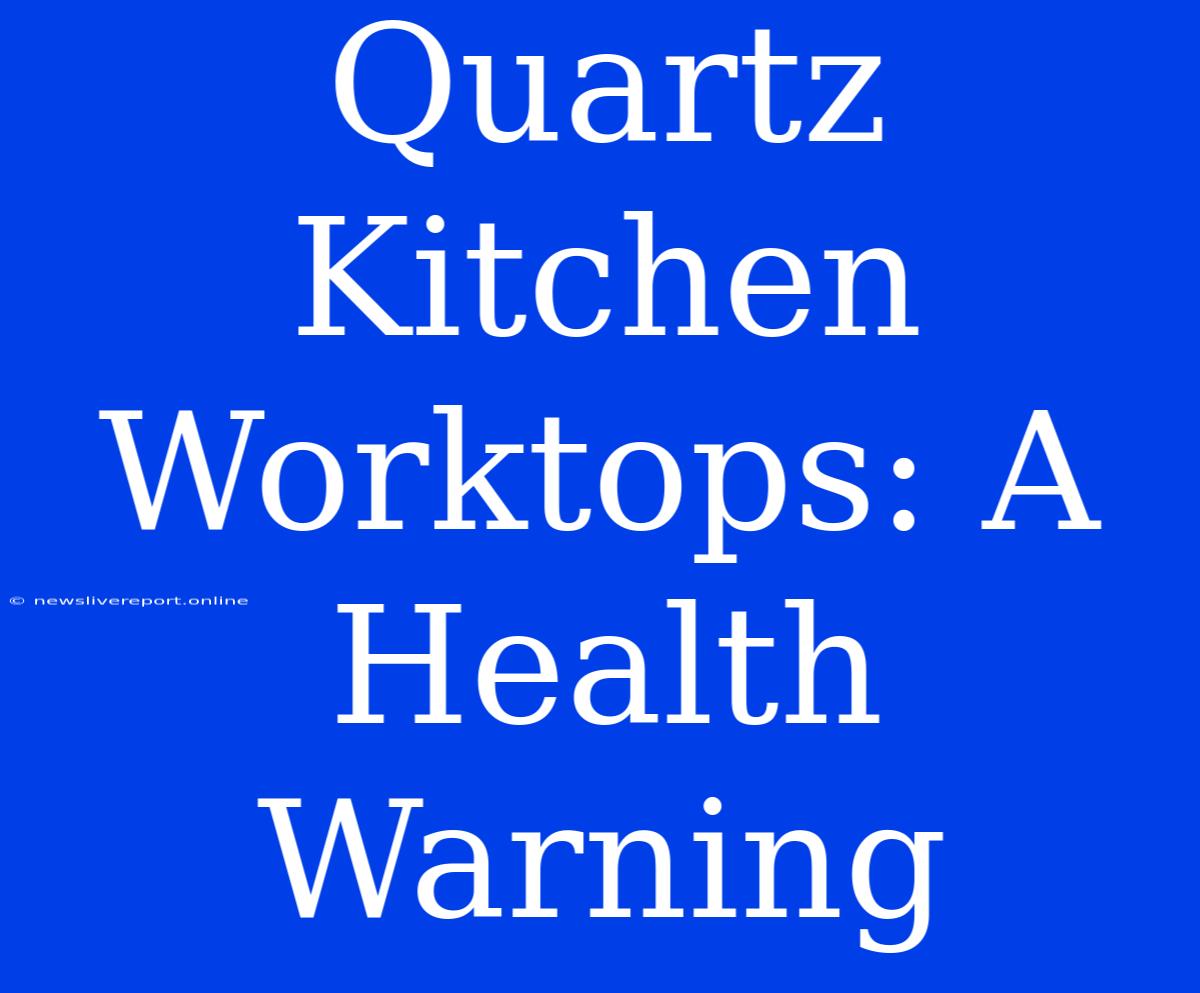Quartz Kitchen Worktops: A Health Warning?
Quartz kitchen worktops have become increasingly popular in recent years, thanks to their durability, low maintenance, and beautiful appearance. However, there are some concerns about the potential health risks associated with quartz worktops, and it's important to be aware of these before making a purchase.
What is Quartz?
Quartz is a naturally occurring mineral, but the quartz used in worktops is engineered. It's made up of roughly 90% crushed quartz crystals and 10% resin and pigments. This combination creates a hard, non-porous surface that is resistant to scratches, stains, and heat.
Potential Health Risks
While quartz is generally considered safe, some concerns have been raised about the following:
- Resin: The resin used in quartz worktops contains volatile organic compounds (VOCs), which can be released into the air. VOCs can be harmful to human health, causing respiratory problems, headaches, and eye irritation.
- Pigments: Some pigments used in quartz worktops contain heavy metals, such as lead and cadmium, which can be toxic.
- Manufacturing Process: The manufacturing process of quartz worktops can involve the use of chemicals and dust that can pose health risks to workers.
It's important to note that these health risks are generally considered low. The amount of VOCs released from quartz worktops is typically below safety limits, and the risk of exposure to heavy metals is also relatively small. However, if you have any concerns, it's best to choose quartz worktops that are low in VOCs and heavy metals, and to ensure proper ventilation in your kitchen.
Tips for Mitigating Risks
Here are some tips to minimize any potential health risks associated with quartz worktops:
- Choose low-VOC quartz: Look for worktops that are certified low-VOC or have been tested for VOC emissions.
- Ventilate your kitchen: Ensure your kitchen has adequate ventilation to help remove VOCs and other pollutants.
- Avoid using harsh chemicals: Clean your quartz worktops with mild detergents and avoid using abrasive cleaners.
- Keep worktops clean and dry: Regular cleaning will help to prevent the build-up of dirt and bacteria, which can harbor VOCs and other harmful substances.
Alternative Materials
If you're concerned about the health risks associated with quartz worktops, there are a number of alternative materials available, including:
- Granite: Granite is a natural stone that is highly durable and resistant to scratches and stains.
- Marble: Marble is another natural stone that is known for its beauty and elegance.
- Laminate: Laminate worktops are more affordable than quartz, and they are available in a wide variety of colors and patterns.
Conclusion
While quartz worktops are generally considered safe, it's important to be aware of the potential health risks and to take steps to minimize your exposure. By choosing low-VOC quartz, ensuring proper ventilation, and following proper cleaning practices, you can enjoy the beauty and durability of quartz worktops without worrying about your health.

